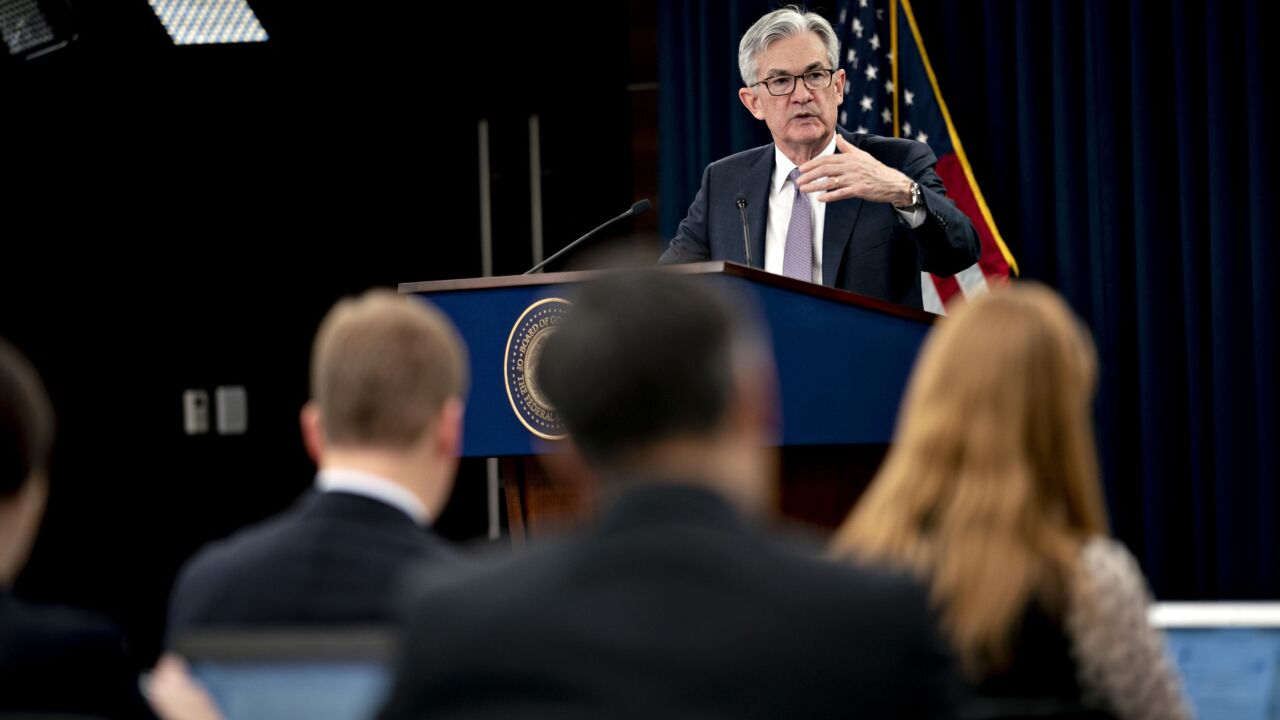Apollo Global Management Inc. faces the prospect of having to hand back earlier profits from several of its funds as its holdings were hit hard by the economic fallout from the coronavirus pandemic.
The firm, together with some current and former employees and partners, were potentially on the hook to give back $965.4 million in profit taken as of the end of March, New York-based Apollo said Friday.
Apollo is the first major alternative asset manager to suggest it may have to pay back profits, known as clawbacks -- a possible harbinger for an industry that’s thrived over the past decade. Many of its biggest bets have been on economic bellwethers such as the travel, energy and retail sectors that have been devastated by the outbreak.
The firm’s private equity portfolio plunged 22% in the first quarter, while its credit and real asset funds saw smaller declines, it said.

Meanwhile, Apollo’s public holdings faced steep declines during the first quarter. Insurer Athene Holding Ltd., which has become an essential fixture in Apollo’s fee-generating permanent capital holdings, declined 47%.
Clawback provisions can require private equity executives to rebate cash distributions to prevent their share of profits from exceeding a set amount, typically 20%, when a fund’s remaining holdings suffer a permanent decline in value.
Yet there is a silver lining in the market tumult. Apollo and rivals are sitting on roughly $1.5 trillion of capital to invest and they’re optimistic they will ultimately profit from the current crisis.
Jon Gray, Blackstone Group Inc.’s president, said last week that his firm is “designed to ride through a difficult environment.” In March, Apollo’s top private equity executives, David Sambur and Matt Nord, told investors that the market turmoil caused by the pandemic presents a “time to shine.”
Apollo, led by billionaire Leon Black, is applying a strategy that worked for the firm during the last financial crisis in 2009. It’s snapping up distressed assets and portfolio company debt at steep discounts. The firm made $41 billion in gross purchases across its businesses in the first quarter.
Sambur told investors during that March call that the dislocation of valuations in the leisure and travel sector presents an opportunity that arises only once every 12 or even 50 years.
In one of its first deals since the crisis erupted, Apollo and Silver Lake bought preferred shares in Expedia Group Inc. that pay a 9.5% dividend and come with the rights to purchase common stock. The Seattle-based travel-booking website has been trying to shore up its finances as the travel industry has been pummeled.
“You have the near-term pressure but it is creating an opportunity to drive greater long-term earnings power,” said Devin Ryan, an analyst at JMP Securities LLC.
Apollo shares have declined 15% this year through Thursday. In April, Apollo fell after Oppenheimer & Co. said asset sales are likely to stagnate in the next two quarters.
Blackstone is down 6.6% during that period while Carlyle slid 27%. Carlyle yesterday reported that its global credit unit saw its funds plunge 21% in the first quarter, driven mostly by declines in energy lending and structured credit strategies.
Like its peers, Apollo has plenty of capital to take advantage of market opportunities. It took in $7.3 billion during the quarter, bringing dry powder to $40.5 billion. Apollo is investing out of a $24.7 billion buyout fund it raised in 2017.
Apollo’s credit business is also looking to jump on opportunities. As of April 2, the firm invested more than $10 billion in only a matter of weeks. The unit is seeking to raise $20 billion across several new funds.




